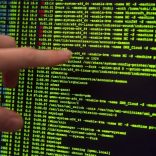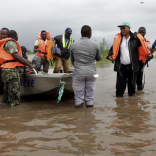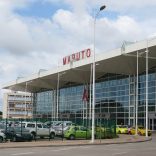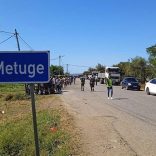Cybercrime in Mozambique increased by 16% last year
Lawyers not present in hidden debts trial session: “Today’s absence is very strange” – DW

FILE PHOTO - For illustration purposes only. [File photo: DW]
- Most of the lawyers for the 19 defendants in the ‘hidden debts’ case did not appear at the deponents’ hearing session this Monday (15-11). Lawyer Ambrósio Sambamate says it is necessary to find out what happened.
The absence of the defendants’ lawyers at the hearing in Maputo this Monday (15.11) caused some surprise and led judge Efigénio Baptista to appoint lawyer Isálcio Mahanjane as the legal defender of all the defendants in yesterday’s session.
Was it a boycott by lawyers? Lawyer Ambrósio Sambamate says that the evidence points to this, but says that they [the lawyers] must be heard by the judge first to understand the reasons, adding that in case of indiscipline, they may be liable for punishment.
DW Africa: What do you say on the absence of the defendants’ lawyers?
Ambrósio Sambamate (AS): It’s very strange, first because it is necessary to take into account that there are, at the level of criminal procedural, rules regarding the absence and presence of the parties of the procedural subjects, be it the judge, lawyers, public prosecutors or defendants. There are rules governing absences, because in principle it is possible that any party or any procedural subject may miss a hearing. It’s normal. However, the absence today – because it happened together – is very strange, although it is very important for us to try and find out what actually happened.
DW Africa: Does it seem like a concerted absence or a kind of boycott?
AS: Apparently, there are reasons to conclude that, in fact, the absence was coordinated. The purpose of this I cannot indicate. It is not normal for all the lawyers to be absent, and only Dr Isálcio Mahanjane, who was appointed public defender, was present. Although the parties may fail to take procedural steps, they may request to be absent in advance – which seems not to have occurred in this case.
The judge is prohibited from holding the trial hearing without the representatives present, which is why he was obliged to appoint an unofficial public defender, but at the same time he can and must impose a fine if he finds that the representative’s absence was not justified.
DW Africa: After this absence was confirmed by the judge and the consequent complaint, some lawyers went to the trial today.
AS: It’s still important to find out what happened. I prefer to comment after seeing the elements that lead to the test on what kind of causes gave rise to the fault. We may be discussing, eventually, a circumstance that the law designates as impediments not attributable to the lawyer. Impediments being those causes beyond the will of the lawyer.
If I were the judge, the least I would do would be to ask each of the lawyers why they were not present. The question would aim to conclude whether the absence is justified or not. Not being justified, because of elements in that sense or in another sense, a fine would be imposed. And, in fact, the judge did very well when he officiated the Bar Association to appoint a permanent lawyer.
DW Africa: The deponents are being heard at the moment and that is why there are those who believe that there is no agenda that justifies the presence of the defendants’ lawyers at this point. Do you share the same opinion?
AS: I don’t share it, because the hearing of the deponents is what we call the production of evidence and still falls within the scope of the hearing and discussion of the trial of the case, which is why their presence is mandatory.
DW Africa: What could happen if episodes like this are repeated?
AS: The judge, basically, can only apply fines and officiate the Bar Association, because the discipline of lawyers is the responsibility of the Bar Association through the National Council. The judge is responsible for sanctioning the act, imposing a fine and, if the fault is constantly verified, the judge can replace the attorney at fault, appointing an unofficial public defender for the accused.












Leave a Reply
Be the First to Comment!
You must be logged in to post a comment.
You must be logged in to post a comment.